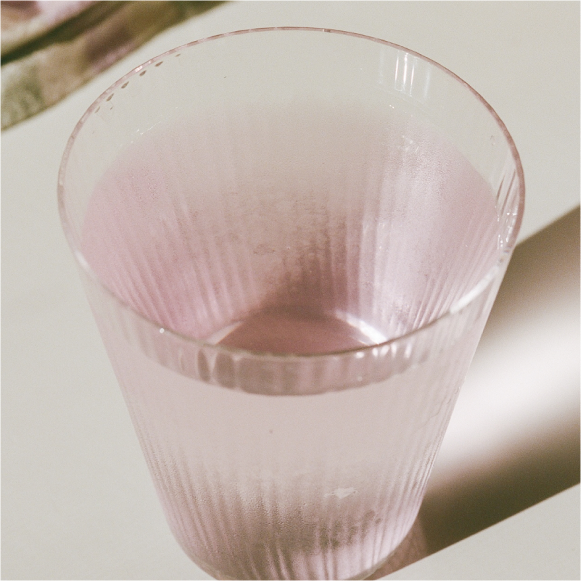Closely tuned into the wellness world? If so, you likely already know that adaptogenic herbs are saving graces to help keep stress, fatigue, and moodiness at bay. Two of the most popular of the bunch are Ashwagandha and Rhodiola. Sure, you might have heard of these adaptogenic herbs or maybe even include one or the other in your current herbal lineup. But how well can you differentiate the two?
Spoiler alert:
Ashwangdha shows clinical evidence to directly lower cortisol levels and thus reduce stress. Meanwhile, Rhodiola helps alleviate specific symptoms associated with stress — namely mental and physical fatigue.
Ahead, we’re taking a deep dive into all things Rhodiola rosea vs. Ashwagandha, including the key benefits of each and whether it’s safe to combine the two.
What Is Ashwagandha?
Ashwagandha, aka Withania somnifera, is a revered herb used in traditional Ayurvedic medicine for centuries. Native to India, Africa, and some regions in the Middle East, it’s an evergreen shrub containing a range of bioactive compounds that have beneficial effects on harmonizing the mind, body, and spirit. Here are some of the benefits of Ashwagandha including stress, mental health, sleep, and cognition.
Regulates Cortisol
Cortisol, aka the “stress hormone,” is a driving force behind the fight-or-flight response. While a moderate amount of cortisol in the body is both healthy and normal, consistently high levels point to consistently high stress… and the many adverse symptoms associated with it. Fortunately, one of Ashwagandha’s key benefits is that it helps manage cortisol and your body’s stress response, thus promoting healthier hormone levels of cortisone, resilience to stress, and a higher quality of life. Many people take Ashwagandha for stress and the below research supports why.
Published in the Indian Journal of Psychological Medicine, one randomized, double-blind, placebo-controlled study investigated the effects of taking a 300mg full-spectrum Ashwagandha root supplement twice daily in 64 participants with a history of high stress. By day 60, compared to the placebo group, participants who supplemented with Ashwagandha:
- Had substantially reduced serum cortisol levels
- Logged significantly reduced scores on all stress-assessment scales
In conclusion, the researchers reported that Ashwagandha supplements are a safe and effective antidote to elevated cortisol levels and can help with stress reduction.
Balances Mood and Brain Health
Excessively high cortisol levels aren’t just linked to stress. According to a review in the Journal of Clinical Medicine, prolonged exposure to elevated cortisol can result in psychological imbalances such as:
- Irritability
- Mood swings
- Depression
Moreover, the review notes that long-term dysregulation of cortisol is also linked to reduced volumes in certain regions of the brain, including the:
- Hippocampus (which plays a crucial role in regulating learning, memory, motivation, and emotion)
- Prefrontal cortex (which is involved with attention, learning, and memory)
- Amygdala (a lower volume of which is associated with impulsivity and aggression)
To stave off a cascade of mood and cognitive health issues, it’s clear how crucial it is to keep your cortisol levels in check. If you want to improve mental performance, this herbal supplement can be a great addition to your daily health routine.
Improves Sleep Quality
When your stress levels are through the roof, you’re probably not getting the quantity or quality of shut-eye you need. Ashwagandha flexes its prowess on the sleep front, as well. Research shows it can improve important sleep parameters — even in people with long-term stress and sleep issues.
Published in the journal Cureus, a randomized, double-blind, placebo-controlled study conducted at India’s Prakruti Hospital investigated the effects of taking a 300mg full-spectrum Ashwagandha root supplement twice daily in 58 patients with these ongoing concerns. At both the 5 and 10-week marks, the Ashwagandha root extract group benefited from:
- Improved sleep quality
- Improved sleep onset latency (i.e., the time it takes to fall asleep)
- Improved sleep efficiency
- Better scores on a comprehensive stress rating scale
If your goal is to swap chronic stress for extra zzz’s, you definitely want to cozy up to Ashwagandha.
What Is Rhodiola?
Rhodiola, aka Rhodiola rosea and arctic root, has been traditionally used in Russia, Scandinavia, and other parts of Europe to do everything from reducing stress levels to improving stamina. Native to cold, high-altitude areas in Europe and Asia, this powerful adaptogenic herb counts rosavin and salidrosides as the primary bioactive compounds most likely to contribute to its impressive health benefits, which include the following.
Reduces Fatigue
When you’re stressed, you likely don’t have a ton of sustained energy to run on. Stress-induced fatigue is real, yet luckily, Rhodiola shows promise to put more pep in your step. Published in the journal Planta Medica, one randomized, double-blind, placebo-controlled study of 60 adults with ongoing fatigue investigated the effects of supplementing with 576 mg of Rhodiola extract per day. By the 28-day mark, the Rhodiola group experienced:
- Significantly lower scores on a burnout scale
- Lower cortisol response to awakening stress
By the end of the trial, the researchers concluded that Rhodiola rosea provides not only a notable anti-fatigue effect but also enhanced mental performance and greater concentration. Moreover, no serious side effects were noted.
Enhances and Protects Cognition
Rhodiola is unique in that it dually stimulates cognitive function while helping to keep you calm. Research shows that this potent herb with adaptogenic properties offers rapid-onset benefits for cognition, memory, and focus.
Published in the journal Phytomedicine, one randomized, double-blind, placebo-controlled study evaluated the efficacy of 370mg or 555mg of standardized Rhodiola rosea extract in 161 cadets aged 19 to 21. Participants in each of the Rhodiola groups exhibited a “pronounced anti-fatigue effect.” They showed an increased capacity to do mental work — even in the face of stress and fatigue.
When taken consistently over time, Rhodiola can also provide sustained neuroprotective effects. Additional research shows that Rhodiola stimulates the central nervous system receptors of:
- Noradrenaline
- Serotonin
- Dopamine
- Acetylcholine
In addition, the adaptogen enhances the effects of these neurotransmitters by increasing the blood-brain barrier permeability of precursors to serotonin and dopamine.
Improved Physical Performance
Feel like you’re lagging at the gym or need an extra oomph to power your sports output? Instead of reaching for suspect energy drinks, mega doses of caffeine, and other types of stimulants, give Rhodiola supplements a try. The adaptogenic herb has been traditionally used to increase endurance; more recent clinical studies are starting to test these methods… as well as back them up. Per a review of 10 studies in the journal Frontiers in Nutrition, Rhodiola boasts positive effects on athletic ability and sports performance and has no clear risks for adverse reactions.
Across these studies, participants who supplemented with Rhodiola rosea experienced:
- Stronger athletic, explosive power
- A reduction in post-exercise pain and muscle damage
- Improvements in skeletal muscle damage
- Enhanced antioxidant capacity (and thus less oxidative stress, aka the primary cause of accelerated aging)
Key Differences Between Ashwagandha & Rhodiola
Now that you know the vital details of Ashwagandha vs. Rhodiola when they go head to head, it’s time to recap their key differences. An Ashwagandha supplement can directly help regulate cortisol levels, thus reducing chronic stress on a hormonal level. It also promotes a balanced mood and mental health, as well as supports brain health and cognitive function. On the other hand, a Rhodiola supplement revitalizes your mind and body, increasing energy levels, alertness, and physical output.
When to Take Ashwagandha
If you struggle with stress and overwhelm, mood imbalances, and/or insomnia, you’ll want to reach for an Ashwagandha herbal supplement. This adaptogenic herb shows clear promise to help alleviate these conditions and promote overall well-being.
When to Take Rhodiola
Meanwhile, if you lack energy or feel like you’re slacking at work (or at your workouts), Rhodiola is a safe bet to spark vitality and offset sluggishness and fatigue. Rhodiola promotes energizing yet calming benefits for your mind and body alike, firmly holding its weight on both fronts.
Is It OK to Take Ashwagandha & Rhodiola Together?
Can’t choose between Ashwagandha vs. Rhodiola? Fortunately, you don’t have to. Generally speaking, it’s safe to take the two adaptogens together — but there are caveats.
Sign Up, Nerd Out
Get wellness tips, education, and recipes
delivered straight to your inbox.
Get wellness tips, education,
and recipes delivered
straight to your inbox.
To start, it’s always wise to discuss your plan with your healthcare team before taking any new supplements — especially if you have medical conditions, take prescriptions, or already take other supplements. Next, although adaptogens tend to complement each other, it’s not always ideal to be your own herbalist by mixing different formulations together. Doing so might run the risk of taking too much of a specific herb or running into a host of other obstacles.
If you’re intrigued by the benefits of Ashwagandha and Rhodiola, a great option is to take a high-quality supplement that contains them both, such as SuperYou®. This adaptogenic supplement for daily stress management is a one-and-done solution to boost energy, mood, and focus — and safely, at that. SuperYou® packs not two but four adaptogenic heroes that complement each other beautifully so you can unstress and perk up.
Hailing from Ayurveda and Traditional Chinese Medicine, these adaptogens include:
- Ashwagandha to help regulate cortisol and reduce irritability*
- Rhodiola, which is traditionally used to reduce fatigue and increase alertness*
- Shatavari, which is traditionally used to support healthy hormonal balance*
- Amla to help protect skin from oxidative stress*
Two caps a day keep stress away. In fact, the clinical-strength formula of our natural stress supplement has been shown to reduce cortisol by 24%, covering your grounds on proactive and reactive fronts. Commit to taking this adaptogenic blend daily. You just might wake up one day to realize that stress, fatigue, and sluggishness are but a distant memory.
Sources
- https://www.nccih.nih.gov/health/ashwagandha
- https://pubmed.ncbi.nlm.nih.gov/23439798/
- https://www.ncbi.nlm.nih.gov/pmc/articles/PMC8584322/
- https://www.ncbi.nlm.nih.gov/pmc/articles/PMC1557684/
- https://www.hindawi.com/journals/bmri/2014/691505/
- https://www.ncbi.nlm.nih.gov/pmc/articles/PMC6827862/
- https://www.nccih.nih.gov/health/rhodiola
- https://www.ncbi.nlm.nih.gov/pmc/articles/PMC5976749/
- https://pubmed.ncbi.nlm.nih.gov/19016404/
- https://www.ncbi.nlm.nih.gov/pmc/articles/PMC9228580/
- https://pubmed.ncbi.nlm.nih.gov/12725561/
- https://www.ncbi.nlm.nih.gov/pmc/articles/PMC9021834/












